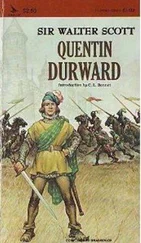Walter Scott - Letters on Demonology and Witchcraft
Здесь есть возможность читать онлайн «Walter Scott - Letters on Demonology and Witchcraft» весь текст электронной книги совершенно бесплатно (целиком полную версию без сокращений). В некоторых случаях можно слушать аудио, скачать через торрент в формате fb2 и присутствует краткое содержание. Жанр: История, на английском языке. Описание произведения, (предисловие) а так же отзывы посетителей доступны на портале библиотеки ЛибКат.
- Название:Letters on Demonology and Witchcraft
- Автор:
- Жанр:
- Год:неизвестен
- ISBN:нет данных
- Рейтинг книги:4 / 5. Голосов: 1
-
Избранное:Добавить в избранное
- Отзывы:
-
Ваша оценка:
- 80
- 1
- 2
- 3
- 4
- 5
Letters on Demonology and Witchcraft: краткое содержание, описание и аннотация
Предлагаем к чтению аннотацию, описание, краткое содержание или предисловие (зависит от того, что написал сам автор книги «Letters on Demonology and Witchcraft»). Если вы не нашли необходимую информацию о книге — напишите в комментариях, мы постараемся отыскать её.
Letters on Demonology and Witchcraft — читать онлайн бесплатно полную книгу (весь текст) целиком
Ниже представлен текст книги, разбитый по страницам. Система сохранения места последней прочитанной страницы, позволяет с удобством читать онлайн бесплатно книгу «Letters on Demonology and Witchcraft», без необходимости каждый раз заново искать на чём Вы остановились. Поставьте закладку, и сможете в любой момент перейти на страницу, на которой закончили чтение.
Интервал:
Закладка:
LETTERS ON DEMONOLOGY
AND WITCHCRAFT
BY
SIR WALTER SCOTT, BART.
To J.G. LOCKHART, ESQ.
With An Introduction By Henry Morley Ll.d., Professor Of English
Literature At University College, London
INTRODUCTION.
Sir Walter Scott's "Letters on Demonology and Witchcraft" were his contribution to a series of books, published by John Murray, which appeared between the years 1829 and 1847, and formed a collection of eighty volumes known as "Murray's Family Library." The series was planned to secure a wide diffusion of good literature in cheap five-shilling volumes, and Scott's "Letters," written and published in 1830, formed one of the earlier books in the collection.
The Society for the Diffusion of Useful Knowledge had been founded in the autumn of 1826, and Charles Knight, who had then conceived a plan of a National Library, was entrusted, in July, 1827, with the superintendence of its publications. Its first treatises appeared in sixpenny numbers, once a fortnight. Its "British Almanac" and "Companion to the Almanac" first appeared at the beginning of 1829. Charles Knight started also in that year his own "Library of Entertaining Knowledge." John Murray's "Family Library" was then begun, and in the spring of 1832—the year of the Reform Bill—the advance of civilization by the diffusion of good literature, through cheap journals as well as cheap books, was sought by the establishment of "Chambers's Edinburgh Journal" in the North, and in London of "The Penny Magazine."
In the autumn of that year, 1832, on the 21st of September, Sir Walter Scott died. The first warning of death had come to him in February, 1830, with a stroke of apoplexy. He had been visited by an old friend who brought him memoirs of her father, which he had promised to revise for the press. He seemed for half an hour to be bending over the papers at his desk, and reading them; then he rose, staggered into the drawing-room, and fell, remaining speechless until he had been bled. Dieted for weeks on pulse and water, he so far recovered that to friends outside his family but little change in him was visible. In that condition, in the month after his seizure, he was writing these Letters, and also a fourth series of the "Tales of a Grandfather." The slight softening of the brain found after death had then begun. But the old delight in anecdote and skill in story-telling that, at the beginning of his career, had caused a critic of his "Border Minstrelsy" to say that it contained the germs of a hundred romances, yet survived. It gave to Scott's "Letters on Demonology and Witchcraft" what is for us now a pathetic charm. Here and there some slight confusion of thought or style represents the flickering of a light that flashes yet with its old brilliancy. There is not yet the manifest suggestion of the loss of power that we find presently afterwards in "Count Robert of Paris" and "Castle Dangerous," published in 1831 as the Fourth Series of "Tales of My Landlord," with which he closed his life's work at the age of sixty.
Milton has said that he who would not be frustrate of his hope to write well in laudable things, ought himself to be a true poem. Scott's life was a true poem, of which the music entered into all he wrote. If in his earlier days the consciousness of an unlimited productive power tempted him to make haste to be rich, that he might work out, as founder of a family, an ideal of life touched by his own genius of romance, there was not in his desire for gain one touch of sordid greed, and his ideal of life only brought him closer home to all its duties. Sir Walter Scott's good sense, as Lord Cockburn said, was a more wonderful gift than his genius. When the mistake of a trade connection with James Ballantyne brought ruin to him in 1826, he repudiated bankruptcy, took on himself the burden of a debt of £130,000, and sacrificed his life to the successful endeavour to pay off all. What was left unpaid at his death was cleared afterwards by the success of his annotated edition of his novels. No tale of physical strife in the battlefield could be as heroic as the story of the close of Scott's life, with five years of a death-struggle against adversity, animated by the truest sense of honour. When the ruin was impending he wrote in his diary, "If things go badly in London, the magic wand of the Unknown will be shivered in his grasp. The feast of fancy will be over with the feeling of independence. He shall no longer have the delight of waking in the morning with bright ideas in his mind, hasten to commit them to paper, and count them monthly, as the means of planting such scaurs and purchasing such wastes; replacing dreams of fiction by other prospective visions of walks by
'Fountain-heads, and pathless groves;
Places which pale passion loves.'
This cannot be; but I may work substantial husbandry— i.e. write history, and such concerns." It was under pressure of calamity like this that Sir Walter Scott was compelled to make himself known as the author of "Waverley." Closely upon this followed the death of his wife, his thirty years' companion. "I have been to her room," he wrote in May, 1826; "there was no voice in it—no stirring; the pressure of the coffin was visible on the bed, but it had been removed elsewhere; all was neat as she loved it, but all was calm—calm as death. I remembered the last sight of her: she raised herself in bed, and tried to turn her eyes after me, and said with a sort of smile, 'You have all such melancholy faces.' These were the last words I ever heard her utter, and I hurried away, for she did not seem quite conscious of what she said; when I returned, immediately departing, she was in a deep sleep. It is deeper now. This was but seven days since. They are arranging the chamber of death—that which was long the apartment of connubial happiness, and of whose arrangement (better than in richer houses) she was so proud. They are treading fast and thick. For weeks you could have heard a footfall. Oh, my God!"
A few years yet of his own battle, while the shadows of night and death were gathering about him, and they were re-united. In these "Letters upon Demonology and Witchcraft," addressed to his son-in-law, written under the first grasp of death, the old kindliness and good sense, joined to the old charm in story-telling, stand firm yet against every assault; and even in the decay that followed, when the powers were broken of the mind that had breathed, and is still breathing, its own health into the minds of tens of thousands of his countrymen, nothing could break the fine spirit of love and honour that was in him. When the end was very near, and the son-in-law to whom these Letters were addressed found him one morning entirely himself, though in the last extreme of feebleness: his eye was clear and calm—every trace of the wild fire of delirium was extinguished: "Lockhart," he said, "I may have but a minute to speak to you. My dear, be a good man—be virtuous, be religious—be a good man. Nothing else will give you any comfort when you come to lie here."
Another volume of this Library may give occasion to recall Scott in the noontide of his strength, companion of
"The blameless Muse who trains her sons
For hope and calm enjoyment."
Here we remember only how from among dark clouds the last light of his genius shone on the path of those who were endeavouring to make the daily bread of intellectual life—good books—common to all.
H.M. February, 1884.
LETTER I.
Origin of the general Opinions respecting Demonology among Mankind—The Belief in the Immortality of the Soul is the main inducement to credit its occasional re-appearance—The Philosophical Objections to the Apparition of an Abstract Spirit little understood by the Vulgar and Ignorant—The situations of excited Passion incident to Humanity, which teach Men to wish or apprehend Supernatural Apparitions—They are often presented by the Sleeping Sense—Story of Somnambulism—The Influence of Credulity contagious, so that Individuals will trust the Evidence of others in despite of their own Senses—Examples from the "Historia Verdadera" of Bernal Dias del Castillo, and from the Works of Patrick Walker—The apparent Evidence of Intercourse with the Supernatural World is sometimes owing to a depraved State of the bodily Organs—Difference between this Disorder and Insanity, in which the Organs retain their tone, though that of the Mind is lost—Rebellion of the Senses of a Lunatic against the current of his Reveries—Narratives of a contrary Nature, in which the Evidence of the Eyes overbore the Conviction of the Understanding—Example of a London Man of Pleasure—Of Nicolai, the German Bookseller and Philosopher—Of a Patient of Dr.
Читать дальшеИнтервал:
Закладка:
Похожие книги на «Letters on Demonology and Witchcraft»
Представляем Вашему вниманию похожие книги на «Letters on Demonology and Witchcraft» списком для выбора. Мы отобрали схожую по названию и смыслу литературу в надежде предоставить читателям больше вариантов отыскать новые, интересные, ещё непрочитанные произведения.
Обсуждение, отзывы о книге «Letters on Demonology and Witchcraft» и просто собственные мнения читателей. Оставьте ваши комментарии, напишите, что Вы думаете о произведении, его смысле или главных героях. Укажите что конкретно понравилось, а что нет, и почему Вы так считаете.









